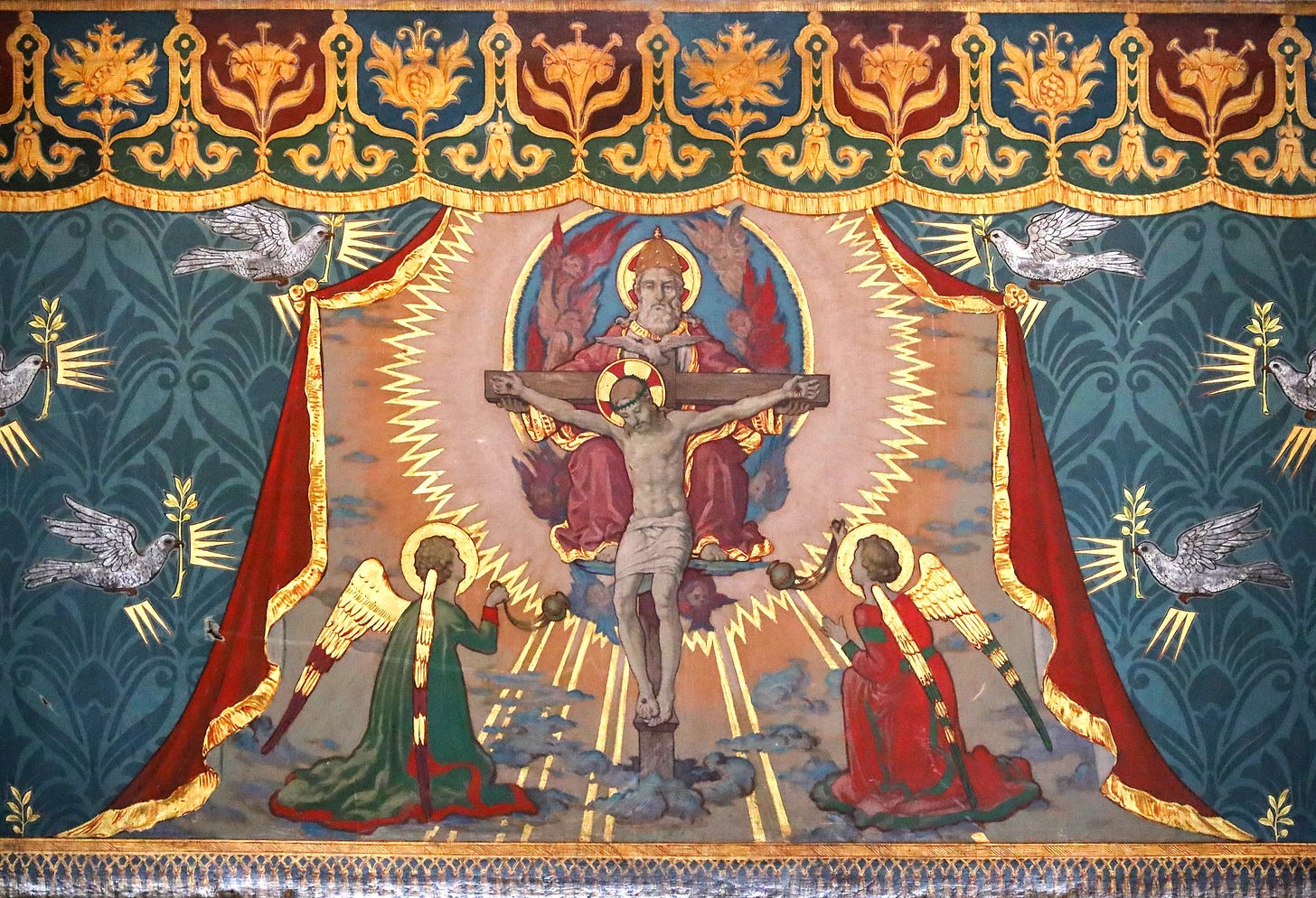What is the meaning of the 'fourfold' love of God?
Why must we love God with all our heart, mind, soul and strength – and how can we see which area we need to develop?

Why must we love God with all our heart, mind, soul and strength – and how can we see which area we need to develop?
Editor’s Notes
In this first part, Fr. Coleridge tells us…
How the Law is summed up in love of God and neighbour as the highest command.
That true religion is measured not by sacrifices but by this interior love.
Why the unity of God stands as the preamble to His supreme claim on the heart.
He shows us that love of God and neighbour is the soul of all divine worship.
For more context on this part, see Part I.
The Great Commandment
Passiontide, Part I
Chapter IX
St. Matt. xxii. 34-40; St. Mark xii. 28-34
Story of the Gospels, § 140
Burns and Oates, London, 1887
The fourfold love
The exact meaning of the fourfold division or obligation of the love of God, may be in some respects uncertain, and we have already said a few words as to the explanation which is commonly given.1
If the heart and soul and strength and mind stand for various faculties and powers in man, and if the total of these makes up the whole duty by which this precept is fulfilled towards his Creator, the heart seems to stand for the will, the mind for the intelligence, the soul for the sensitive faculties and powers as distinct from the spirit, and the strength for all the forces and energies which man can bring to bear on the accomplishment of what he is wholly bent upon and devoted to, whether those forces and energies be considered as bodily or as spiritual.
Or perhaps the words may be considered in another way, taking man as one, without so much distinction between one set of faculties and another set, but speaking of him as entirely occupied and absorbed in the full extent of all the powers of his nature, leaving none unspent to the utmost in the service of his Lord.
Father Coleridge Reader is a labour of love. But curating, cleaning up and publishing these texts takes real work.
To keep this project going, and to make more of this treasury available, we rely on reader support. Some posts are reserved for members to sustain this mission.
We’re trying to keep something precious alive.
If you’ve benefited, consider joining us as a subscriber. It makes a real difference.

